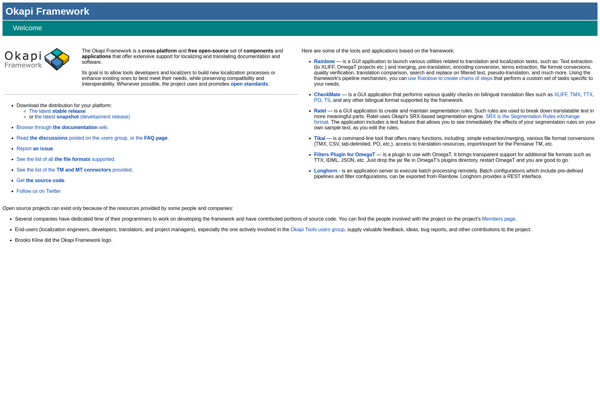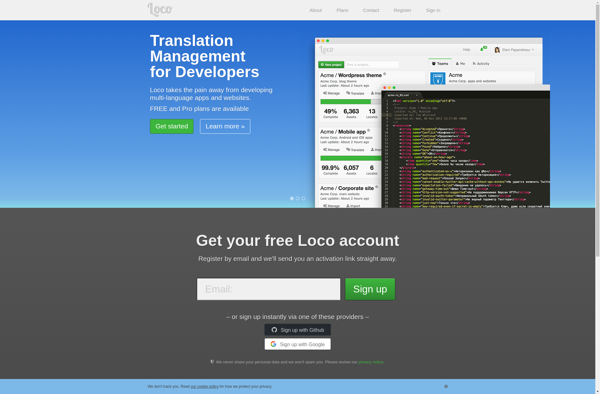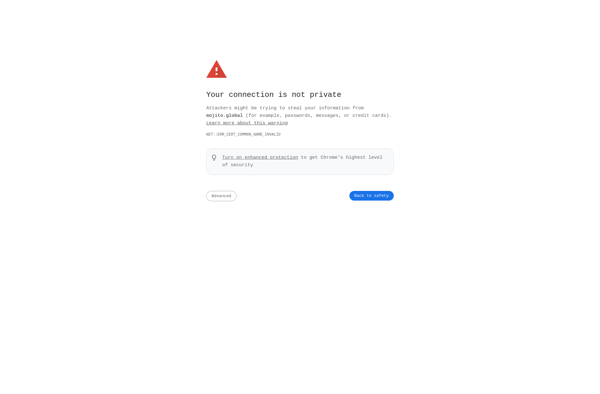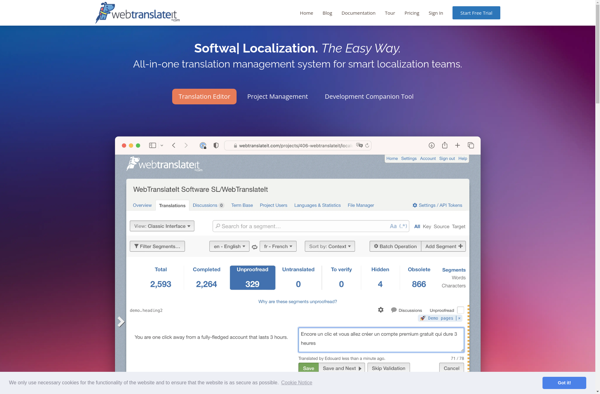Okapi Framework

Okapi Framework: Modular Platform for Multilingual Content Management
The Okapi Framework is an open-source, modular, highly extensible platform to create, manage and access multilingual content. It allows organizations to manage content in multiple languages and enables seamless integration with translation services.
What is Okapi Framework?
The Okapi Framework is an open-source platform designed to help organizations manage multilingual content and translation workflows. It provides a set of components and interfaces that can be combined to build customized translation infrastructure solutions.
Some key features of Okapi Framework include:
- Content storage connectors - Plugins allow content to be stored in various databases, content management systems, file systems etc.
- Filter pipeline - Manipulate and convert content as it passes through the system using a chain of filter components.
- Support for translation memory systems - Integrate machine translation and human translation seamlessly.
- Format support - Works with many common file formats like HTML, XML, JSON, Docx and more.
- Modular architecture - Components can be mixed and matched to build custom solutions.
- Robust and scalable - Used to power translation systems handling millions of translations.
The flexible and modular nature of Okapi Framework allows enterprises to build customized platforms for managing multilingual web content, documentation and software translations. It is an invaluable tool for localization service providers and organizations regularly handling large multilingual content catalogs.
Okapi Framework Features
Features
- Content storage
- Translation management
- Format conversion
- Quality assurance
- Terminology management
- Workflow management
- Connector system for integration
Pricing
- Open Source
Pros
Cons
Official Links
Reviews & Ratings
Login to ReviewThe Best Okapi Framework Alternatives
Top Office & Productivity and Content Management and other similar apps like Okapi Framework
Here are some alternatives to Okapi Framework:
Suggest an alternative ❐Loco Translate

Mojito (by Box)

WebTranslateIt
